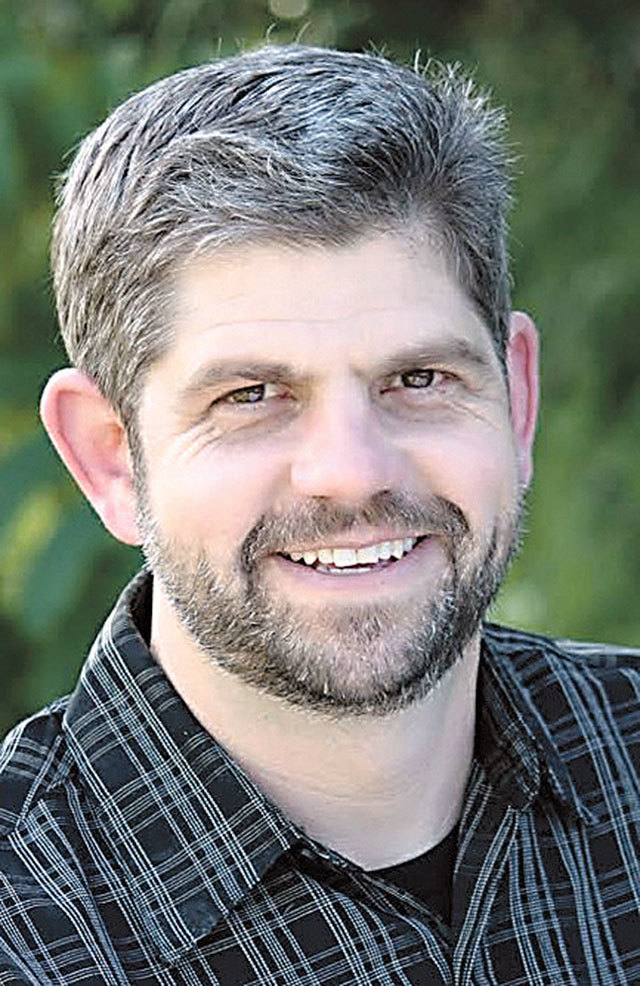PORT ANGELES — A juvenile justice sales tax might appear on the Clallam County election ballot this November.
The three commissioners agreed Monday to continue exploring a one-tenth of 1 percent juvenile detention facility sales and use tax.
If commissioners decide to put the measure on the ballot — and voters approve it by a simple majority — the tax increase would result in $1.1 million of annual revenue for the Clallam County Juvenile and Family Services facility.
Clallam County would receive all of the revenue because it provides youth detention services at no cost to the cities of Port Angeles, Sequim and Forks.
Commissioners favored the juvenile corrections tax over a two-tenths of 1 percent public safety tax that would fund law and justice services more broadly.
The public safety tax can be as much as three-tenths of 1 percent.
At two-tenths of 1 percent, Clallam County would receive about $1.2 million in annual revenue and the cities would collect a combined $880,000, County Administrator Jim Jones said in a 28-page analysis.
While financial projections are favorable this year, Clallam County officials are seeking new sources of revenue to correct a long-term structural budget deficit and avoid a looming fiscal “waterfall.”
“In a nutshell, where we are now is we feel like we’re staffed at just about the minimum level necessary to provide the current level of service,” Commissioner Mark Ozias said in a Monday work session.
“We’re looking out ahead and thinking about the waterfall, and an additional revenue stream would help us stay on a higher elevation on the river, so to speak.”
Commissioners have said they would not impose a new tax without voter approval.
The Clallam County Juvenile and Family Services facility at 1912 W. 18th St. has been recognized as being one of the top juvenile centers in the state.
It is the only facility with a licensed crisis center for runaway youth and an in-house drug, alcohol and mental health program.
“It does a lot of good,” Commissioner Randy Johnson said in the work session.
The programs offered at the Clallam County juvenile facility help “capture” wayward youth, Johnson said.
“We have a chance, at that point, to do that,” Johnson said.
“The alternative to save money, of course, is to ship everyone to Kitsap County. When I think about that as an alternative, that, to me, is just a horrible alternative.”
Other options for new revenue that commissioners discussed in a March 27 work session were a property tax levy lid lift and a $10 annual increase on license plate renewals to form a transportation benefit district.
Given all the options, Johnson said he would prefer the juvenile facilities tax, which is being imposed by 14 counties in the state.
“And by the way, if we don’t market it, it certainly won’t pass,” Johnson told his fellow board members.
Commissioner Bill Peach said the law and justice sales tax would be a “tough sell” because it would help fund indigent defense.
“How in the world are we going to explain to our taxpayer, you get to put dollars into a [service] that takes care of someone else’s legal fees?” Peach said.
“I think that’s a tough sell, a really tough sell.”
From a communications standpoint, Peach said it would be easier to support a specific program like juvenile services.
“It’s a $3 million-a-year operation,” Peach said. “We’re into it for about $1 million. It’s time for us to have the conversation: Should we continue this, or should we address new issues such as homelessness, such as the heroin issue, such as some of the people with mental health issues that have no place to go?
“This is a way for us to get some more positive feedback,” Peach added.
“If we don’t fund it, it really says that we’ll have to shift gears.”
Ozias said he, too, was leaning toward the juvenile correction tax.
“Budget-wise it just makes sense, and that service is something that I think would be easy for us to really help the public understand how important that is,” Ozias said. “It seems more straightforward.”
A potential benefit of considering a public safety tax would be getting support from cities that would receive a share of the revenue, Ozias said.
Johnson said the cities should have a role in promoting a juvenile corrections tax, too, since the county-funded service helps all youth in the county.
Ozias suggested that the board hold another work session on a potential juvenile corrections sales tax in four to six weeks.
If a sales tax is approved in November, it would likely take effect April 1.
All 39 counties in the state are grappling with how to fund law and justice services, Clallam County officials said.
Property tax, which is limited to 1 percent of the previous year’s collection plus new construction, is the single largest source of revenue for counties, Jones said.
“Even if [other counties] do have growth, any time there’s even the slightest bit of inflation they get behind the 8-ball because law and justice expense always goes up more than inflation,” Jones said.
A juvenile corrections tax measure would be a good vehicle to gauge community support for the program, Jones said.
“If you want it, we can dedicate some funds to it, and it will help to ensure that the service and the wonderful work they’re doing out there continues into the future,” Jones said.
“Otherwise, we’ve got to look at another method, because law and justice expenses altogether are going up greater than inflation. Our revenue is not. There’s the waterfall.
“This [tax] would take care of, for at least the next several years, some of that waterfall,” Jones said.
________
Reporter Rob Ollikainen can be reached at 360-452-2345, ext. 56450, or at rollikainen@peninsuladailynews.com.

